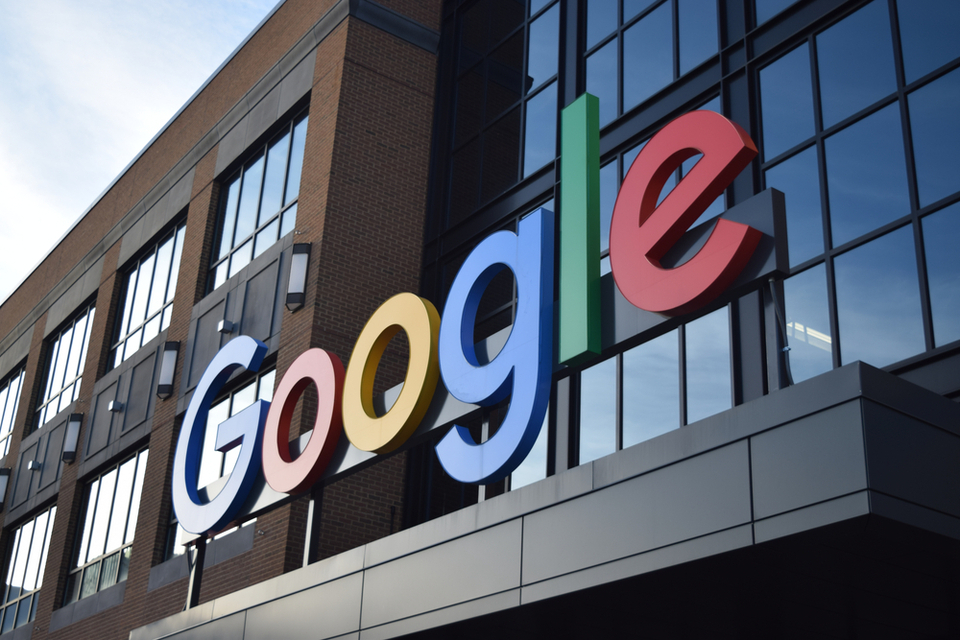On October 4th, 2016, Google announced a flurry of new devices, which they dubbed “a family of products that brings people the best of Google through hardware and software made by Google.” At Edgy Labs, we believe that it would be an easy mistake to assume that this event was about new products, and many tech websites have missed the gravity of this presentation.
The real story today was the future of Google. The shift from a Google for everyone to a PERSONAL Google for every USER.
Traditionally Google is not known for its vertical integration; that would be distinctively Apple. On stage, Google’s CEO Sundar Pichai made the case that the time had arrived for a better experience driven by a closer integration between hardware and software.
The hardware is a means to an end. Deep Learning has made a significant impact on state of the art AI and Machine Learning. We recently covered Google’s WaveNet, innovations which have leapfrogged computer’s abilities to synthesize speech which resembles that of a human.
Similar progress in translation and natural language processing have made Google’s ambitions possible: to create an artificial intelligence assistant for each person. Clearly, this is not the first foray into this dream for Google: they have already begun personalizing search a while ago, Google Now was dubbed an intelligent personal assistant back in 2012.
But it took these algorithmic advances in language understanding to bring Google’s vision to maturity. And the world will never be the same again. Just like we saw the smartphone wars take place in the past nine years, this marks the beginning of the artificial personal assistant wars.
We already knew and loved Amazon’s Alexa, but Google is currently in a league of its own, and we wonder who will challenge Google. The heavyweight contenders are IBM, Microsoft, Facebook, Amazon and Apple. Also, for reasons Elon Musk pointed out, Edgy Labs supports the cause of setting AI free, and so we want to give a shoutout to our friends at OpenAI.
Decoding Google’s Design Language


Notice that the new logo is truly Google, but this time personalized for you. The ordering, position, and size are re-arranged to your personal preferences.
This new logo was central to all of the hardware and software products announced at its October 4th event. There is no reason for a Google phone to exist unless it makes the Google AI central to the experience. Anyone can make a phone with a better camera.
There is no reason for Google’s home device – unless it is ten times better than Amazon’s Alexa. And is it? Regarding AI – absolutely. Google has achieved consumer-grade contextual, conversational language understanding, a phenomenal achievement.
Okay, GOOGLE!
To illustrate this, Google demonstrated conversations in chat and voice which could remember the conversation and for the first time – truly interact in a human way. For all our admiration of Alexa, she only understands single sentence commands. Ok, Google changes everything we will come to expect from voice interfaces.
What else can we learn from Google’s design language? FABRIC! Yes – textile. Google created it’s VR headset from textile, and also the base of Google Home, their Alexa competitor. Why? Because fabric material is intimate, it’s flexible and personal.
Fabric breathes and is the stuff we keep the closest to our bodies. Google is telling us that it’s time for us to become even more intimate with technology as we will begin to interact with it on a whole new level.
A Google for Everyone
Today Google re-affirmed its commitment to remaining the leader in search and assert itself as the new leader in knowledge. The implications of the “Google for Everyone” strategy are far-reaching and will require future posts on Edgy Labs to explore with you fully.
We are not afraid to assert that Google just positioned itself to become the de-facto leader in Virtual Reality and that the effects of a “Google for Everyone” will mark the start of the race to dominance for Business Bots. We foresee a new breed of SEO, and exciting new frontiers for Growth Hackers.
Unless you are buying the new Google products right away, it may take some time before this vision becomes a reality in your life – but with the worldwide reach of Android, we believe that we have just witnessed a historic inflection point.




















Watched the Google show and was completely blown away by the Google Assistant. Really want to give it a try myself to see if what the demonstrated is real. If real simply wow!
I purchased the Echo when first came out and we love it. But it requires to say things in certain ways and is very weak at answering questions.
I pre-ordered the Google Home last night to see for myself if this is real. But if Google has this really working hard to see the Echo survive.
Hi Jack,
Welcome to our blog! We just launched two weeks ago, and we’re super excited to see it grow. You are our second commenter, so join our hall of fame. Please do come back and share your voice!
I agree Google just set the bar so very high. What Amazon did so well with the Echo / Alexa, was far-voice technology. It is ten times better than anything we’ve seen before. Now Google is learning from the Echo, but putting the weight of its entire knowledge graph and AI behind it.
Don’t count out the competition, but it will take a while before they catch up I believe. Kind of like when Steve Jobs launched the iPhone. Androids were terrible for a long, long time.
Our server was handling about a 1000 concurrent users this morning, wow! Thank you everyone, and a special shout-out to the amazing Reddit community! Our site just launched two weeks ago and we couldn’t be more excited to see thousands of new people discovering our blog.
I don’t trust Google.